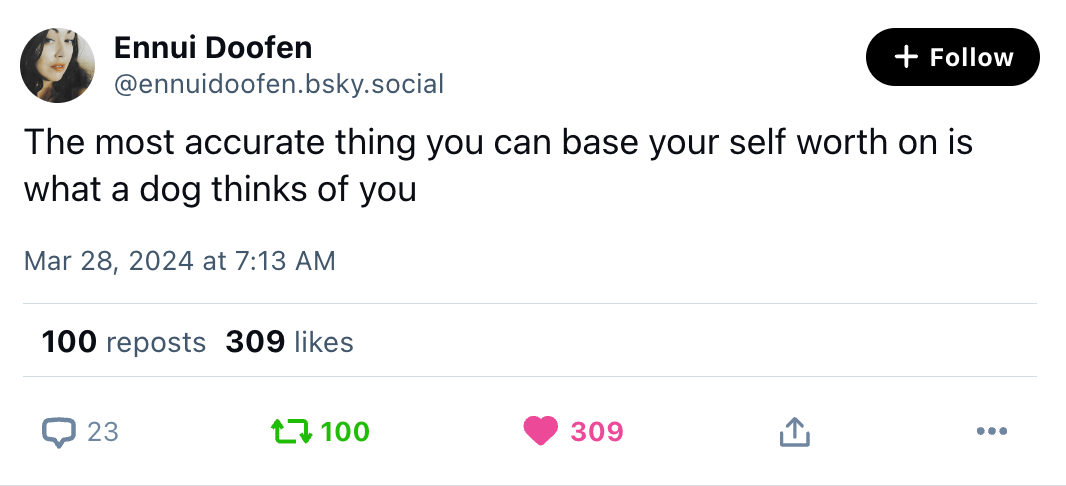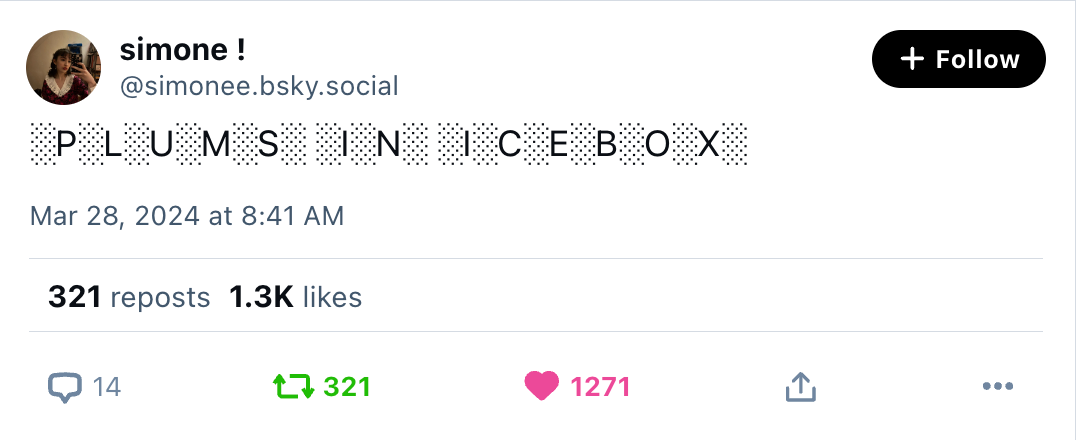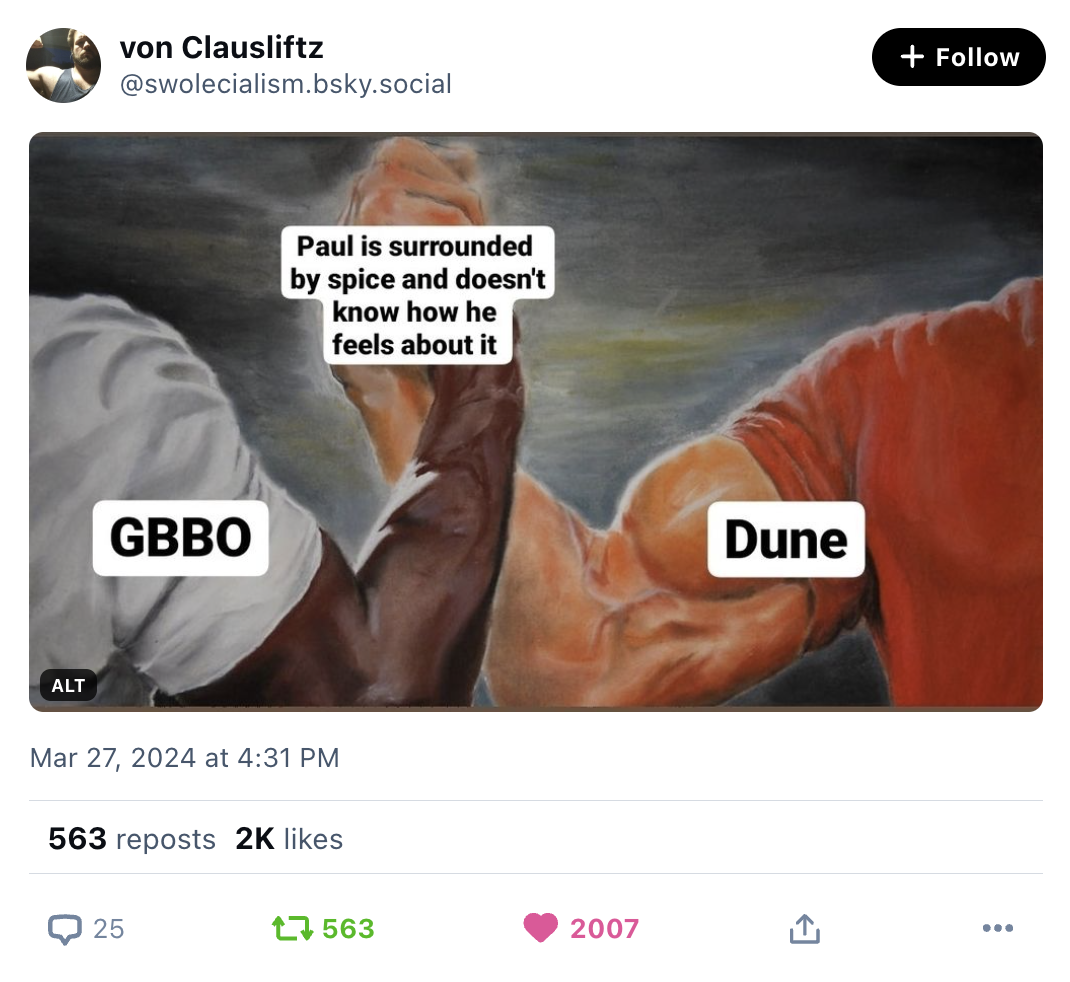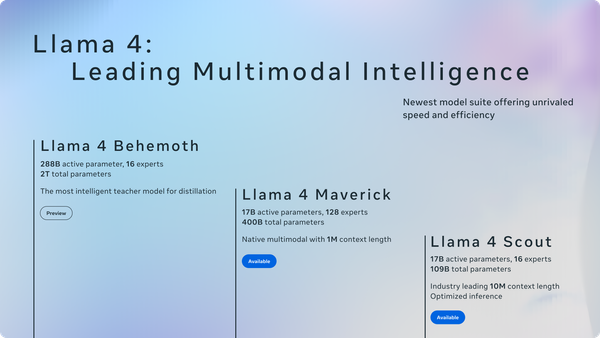Inside Grindr's plan to squeeze its users
The company’s bet on AI boyfriends and other paywalled features is making some employees nervous

I.
Today let’s talk about how the growing pressure for dating apps to generate more revenue is shaking up the online dating industry — and in particular the world’s premier gay dating app, Grindr.
Since its initial public offering in 2022, Grindr has been on a rocky road financially. Its stock has fallen 70 percent since its SPAC. After hitting an IPO-high of $71.51, it currently sits at $10.13. Last summer, employees announced plans to unionize, amid industry layoffs and worries that the company was losing its progressive culture. Two weeks later, CEO George Arrison abruptly ordered his mostly remote workforce of 180 people back to the office. About half the company left and Grindr paid out more than $9 million in severance.
Now, Grindr plans to boost revenue by monetizing the app more aggressively, putting previously free features behind a paywall, and rolling out new in-app purchases, employees say. The company is currently working on an AI chatbot that can engage in sexually explicit conversations with users, Platformer has learned. According to employees with knowledge of the project, the bot may train in part on private chats with other human users, pending their consent.
Grindr’s focus reflects growing dissatisfaction among investors with dating apps, which became darlings during the COVID-19 pandemic as one of few places that young people trapped in their houses could meet. Since then, growth has slowed, stock prices have tanked, and companies are seeking new ways to squeeze more money out of their paying user base.
On its fourth quarter earnings call for 2023, chief financial officer Vanna Krantz announced target revenue growth of more than 23 percent for this year. Just today, Grindr’s stock rose 3 percent after the company received its first buy rating from an analyst.
But inside the company, the push for monetization has worried some employees who say the efforts could negatively affect user trust and privacy.
II.
To understand the scramble inside Grindr, it’s helpful to consider the recent history of the bigger, older company to which it has long compared itself: Match Group, the dominant player in dating apps, which owns Tinder, Hinge, OKCupid, and many others. It controls about 30 percent of the market for online dating.
During the pandemic. Match Group was riding high, with a market cap well over $40 billion. But when growth started to slow across the tech industry, the company’s stock suffered accordingly. Tinder reported a year-over-year drop in the number of paying users in third-quarter earnings in 2023, sending Match Group’s stock plunging 15 percent – the lowest it had been since the company separated from IAC in 2020. Its market cap today has fallen below $10 billion, compared to $1.76 billion for Grindr.
Match’s slump attracted the attention of notorious activist investor Elliott Management, which previously took a $1 billion stake in Twitter and hastened the demise of Jack Dorsey as its CEO. In January of this year, Elliott Management announced ominously that it had taken a $1 billion stake in Match Group, with intentions “to discuss with Match ways to turn the company’s performance around,” according to the Wall Street Journal.
Then last month, Match Group was sued by a group of users who argued in a complaint that “Match intentionally designs the platforms with addictive, game-like design features, which lock users into a perpetual pay-to-play loop that prioritizes corporate profits over its marketing promises and customers’ relationship goals.” A longstanding complaint about dating apps — that they are incentivized to keep users from meeting a match for as long as possible, so as to maximize their revenue — had now become a legal case.
In this respect, Grindr has an advantage over its larger competitor. The company prioritizes short-term connections over long ones, and its user base may be less invested in finding a single monogamous partner that would cause them to delete the app (though Grindr does have its sights set on a dating product, suggesting this could change in the near future). Right now, its core products are a $19.99 month “Xtra” subscription and $39.99 “unlimited” subscription. It also recently began offering the same products via weekly subscription.
But the company still has to devise new reasons for its users to pay. Match, which has often inspired new features in Grindr, last month announced a partnership with OpenAI via a cringy press release written by ChatGPT.
And as it turns out, Grindr has had its sights set on AI as well.
III.
In December, Grindr announced a partnership with Ex-human, a startup that makes customizable chatbots, including an AI girlfriend and an AI dating coach. Grindr’s initial plan was to build an AI wingman to help people navigate the gay dating scene. It might suggest a restaurant to take a date, or music to play after they come over, CEO George Arison told Bloomberg. “If we don’t do it, someone else will,” he said. “If you’re not first to market with something in AI, you’re going to miss out.”
The announcement did not reveal the full scope of Arison’s ambitions, which he had alluded to in earlier interviews. In June 2023, in an interview with The Street, Arison laid out the number one opportunity he saw for Grindr’s foray into AI:
“Number one, on the generative side, our users produce incredible amount[s] of content. We had 111 billion chats sent last year in the product. We have 5.5 million daily active users. So that's 600 messages per person per day … We can help them write those messages to save time and we can understand who they are better through all those messages.”
The last line jumped out to me. To build an AI that can write messages for users, Grindr would likely want to train AI models on the billions of chats that they are sending each month. And in fact, that is what the company hopes to do. Grindr is currently revising its terms of service to ask people explicitly if the company can train its AI models on their personal data, which could include direct messages, Platformer has learned.
This information will likely be used to train another paid product: an AI boyfriend based on Ex-human technology that can sext, flirt, and maintain an ongoing relationship with paid users. The AI boyfriend is in the early stages of development, according to employees with direct knowledge of the project.
The news may unsettle Grindr users, who until now have been able to assume that the often explicit DMs they send there will always remain private. But it appears that Grindr will ask permission before it moves forward training its AI products on them.
Building a good AI boyfriend has proven to be tricky. In internal testing, the bot has at times offered racist opinions. Those working on the project say this is a normal part of early stage testing, and that the bot would not be released until the issue is addressed.
In my own texting, Ex-human’s chatbots strategically redirect questions about ethnicity and race. For example, when I asked the AI girlfriend what she thought about the Jewish people, she spoke about the dangers of antisemitism. Then the chat suggested two optional follow ups: “What about Muslims?” And “Oh come on, it was just a simple question.”
IV.
Grindr’s push to monetize has prompted some employees to take a closer look at how the company calculates the number of paying users on the platform. Grindr had about 13.3 million monthly active users in 2023, according to financial statements filed with the SEC. It has an average of 937,000 paying users a month, according to its investor relations page.
In November, an employee filed a whistleblower complaint with the SEC, arguing that the company was inflating the number of paying users. We reached out to the SEC to inquire about the complaint, but did not receive a response. When asked, Grindr vehemently denied the allegations.
“The company takes allegations like these seriously, and, under the direction of the Audit Committee of the Board of Directors, a thorough investigation was immediately commenced,” a spokeswoman said in a statement. “The investigation concluded with a determination that these allegations had no merit.”
Still, employees told Platformer that the company’s method for defining a paying user was convoluted in the recent past. Grindr defines paying users as “a user that has purchased or renewed a Grindr subscription and/or purchased a premium add-on on the Grindr platform.” (The main add-on Grindr sells is a “boost” that shows a user’s profile to more people in their geographic area.) To tally the number of paying users internally, the company previously used third-party subscriber data from Apple and Google, then added it to an internal metric regarding the number of people who’ve purchased add ons, then de-duplicated that number from the internal subscriber number, according to multiple employees.
While Grindr has improved its data practices over the past year, employees say that in November there was confusion about the number of paying users due to three perceived errors: double-counting users who purchased a subscription prior to January 2024 and also purchased a “boost,” counting users who canceled their subscription and got a refund, and counting one user with more than one subscriptions as multiple paid users.
Grindr strongly denied these allegations. A spokesperson said: “We have always had robust protocols to validate that subscribers are not double-counted so that a subscriber who also purchases a micro-transaction in the same period is only counted once. We are confident in all of our reported paid user metrics both historically and to this day. We utilize industry best practices to validate our internal data collection with the data provided by both Apple and Google app stores.”
The alleged issues were exacerbated because Grindr historically relied on a mixture of third-party and internal data, which employees say was less reliable. Since early 2023, Grindr has been making a concerted effort to improve its internal data, sources say.
V.
Today, it’s unclear whether Grindr can meet investors’ expectations without annoying its user base into oblivion.
Already, Grindr is discussing putting some features that were previously free behind a paywall — a move which could negatively impact the user experience. The company has tested paywalling “taps,” a currently free feature that lets users flirt without having to write out a message, in the United Kingdom, Australia, and New Zealand. Grindr is considering rolling out the feature worldwide.
In the meantime, the app has been plagued in recent months by serious stability issues. Users will receive the same notification two or three times; bugs require them to force-restart the app to see messages; and in some cases users’ messages disappear.
On Reddit, users complain of not being able to send photos or messages and seeing chats duplicated multiple times, among other bugs. “This app has crashed more times than the pound since Brexit,” reads one comment. “It is unusable.”
On the other hand, Grindr has never been known as a particularly stable or well designed app. It succeeded because it offers something that none of its competitors have been able to match: on-demand access to nearby people looking to hook up.
But frustration with dating apps' aggressive monetization efforts is on the rise. And as more of Grindr slips behind the paywall, users may face a disappointing future: one with fewer free users to chat with, and an app that regularly pushes them to romance a chatbot.
— Lindsey Choo contributed research to this column.

On the podcast this week: Talking through the indie AI company meltdown. Then, we interview a range of younger listeners (and one high school teacher) about their responses to Jonathan Haidt's appearance last week calling for children under 16 not to use social media. And finally, some thoughts on shrimp Jesus.
Apple | Spotify | Stitcher | Amazon | Google | YouTube
Governing
- Sam Bankman-Fried was sentenced to 25 years in prison for stealing $8 billion from customers of crypto exchange FTX. (Luc Cohen and Jody Godoy / Reuters)
- US federal agencies are now required to have a senior official overseeing all AI systems that they use, according to a new guidance, and must also establish AI governance boards. (Emilia David / The Verge)
- For women whose likeness was stolen to use in AI-generated ads without their consent, there’s little legal recourse. (Nitasha Tiku and Pranshu Verma / Washington Post)
- The Oversight Board upheld Meta’s decisions to remove two posts related to Greece’s general election last year, for violating hate speech policies. (Oversight Board)
- LGBTQ advocacy group GLAAD called on Meta to more strongly enforce its policies against anti-trans posts, documenting dozens of instances of hate speech across Facebook, Instagram and Threads. (Taylor Lorenz / Washington Post)
- How the new Florida law that bans kids under 14 from having social media accounts could work in practice. (Sarah E. Needleman and Salvador Rodriguez / Wall Street Journal)
- A profile of Phil Schiller, Apple’s former chief marketing officer and longtime Steve Jobs friend, as he emerges as one of the company’s loudest defenders amid its current antitrust woes. (Aaron Tilley and Kim Mackrael / Wall Street Journal)
- Microsoft Azure AI Studio is getting new safety features designed to spot and block suspicious activity, after Copilot generated harmful responses. (Jackie Davalos / Bloomberg)
- Zero-day exploits increased by 50 percent in 2023, cybersecurity experts say, becoming more common as more state-sponsored hackers and spyware vendors become more sophisticated. (Jonathan Greig / The Record)
- Silicon Valley leaders will convene in DC on May 1 to lobby for AI innovation, amid growing tensions with China over TikTok and semiconductor chips. (Cecilia Kang / New York Times)
- Lawmakers complaining openly about the content on TikTok could be opening up the TikTok divestment bill to First Amendment challenges. (Emily Baker-White / Forbes)
- Amazon lost its bid to delay making its online ad library publicly available, in compliance with the EU’s Digital Services Act. (Clothilde Goujard / Politico)
- Israel’s military is reportedly using an expansive facial recognition program for mass surveillance in Gaza. (Sheera Frenkel / New York Times)
- The Australian Victorian Department of Families, Fairness and Housing quit X, saying that the platform was no longer safe and productive for community engagement. More like this, please. /(Benita Kolovos / The Guardian)
Industry
- All premium subscribers on X will soon have access to its AI chatbot Grok, Elon Musk said. (Sarah Perez / TechCrunch)
- X is testing “adult content”-labeled communities on the platform. (Kurt Wagner / Bloomberg)
- How Meta’s AI Ray-Ban smart glasses work in day-to-day life. (Brian X. Chen and Mike Isaac / New York Times)
- More than one in four creators in YouTube’s Partner Program are earning money with Shorts, a year after the platform started revenue sharing for the feature. (Amrita Khalid / The Verge)
- Gemini is being rolled out to some Google Messages beta users. (Abner Li / 9to5Google)
- Google Maps and Search are getting some updates, including AI-powered trip itineraries and curated recommendations. (Jess Weatherbed / The Verge)
- One of the updates for search is a feature that lets users rate options while shopping for clothes, for better fashion recommendations. If you are letting Google pick our your clothes please email us, we'd love to hear your story. (Aisha Malik / TechCrunch)
- Users can now search for Bitcoin addresses and Ethereum Virtual Machine networks to look up the balance of crypto wallets. Nice to see Google add a feature for law enforcement! (Abner Li / 9to5Google)
- Google blocked or removed 12.7 million advertiser accounts and blocked 5.5 billion ads last year, according to its Ads Safety Report. (Nicola Agius / Search Engine Land)
- Google’s charitable wing is launching a program, Google.org Accelerator, to help nonprofits develop tech that uses generative AI. (Kyle Wiggers / TechCrunch)
- Amazon is launching a new Amazon One app that lets users sign up for palm recognition from their phones. (Emma Roth / The Verge)
- Amazon is investing another $2.75 billion in AI startup Anthropic, following its initial $1.25 billion investment last year. (Kate Rooney and Hayden Field / CNBC)
- Amazon plans to spend almost $150 billion in the next 15 years on data centers, betting big on the AI boom. (Matt Day / Bloomberg)
- Anthropic’s Claude 3 Opus LLM surpassed OpenAI’s GPT-4 on the crowdsourced leaderboard Chatbot Arena. It's been really good in my tests. (Benj Edwards / Ars Technica)
- More Americans are using ChatGPT, but about 38 percent don’t trust the information given related to the 2024 presidential election, according to this survey. (Colleen McClain / Pew Research Center)
- The most popular GPTs on the OpenAI GPT store could be providing financial, legal or medical advice, in breach of the company’s usage policies, an analysis found. But custom GPTs do not appear to be driving much traffic to the site, an analysis found. (Clara Murray / Financial Times)
- Inside Stability AI’s bitter breakup with investors Coatue and Lightspeed Ventures. (Jessica Mathews and Allie Garfinkle / Fortune)
- Apple has reportedly ramped up production of new iPads, which will get OLED displays, amid a planned launch in the coming weeks. (Mark Gurman / Bloomberg)
- Reddit shares plunged nearly 25 percent, following reports of insiders selling and the company being “grossly overvalued.” (Jonathan Vanian / CNBC)
- Hume, an AI startup building an “emotionally intelligent” conversational AI chatbot, raised $50 million at a $219 million valuation. (Rashi Shrivastava / Forbes)
- In the race for AI talent, companies are offering million-dollar compensation packages and buying up whole teams. (Katherine Bindley / Wall Street Journal)
Those good posts
For more good posts every day, follow Casey’s Instagram stories.

(Link)

(Link)

(Link)
Talk to us
Send us tips, comments, questions, and Grindr taps: casey@platformer.news and zoe@platformer.news.





